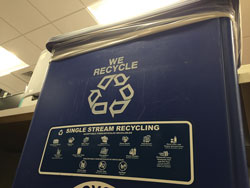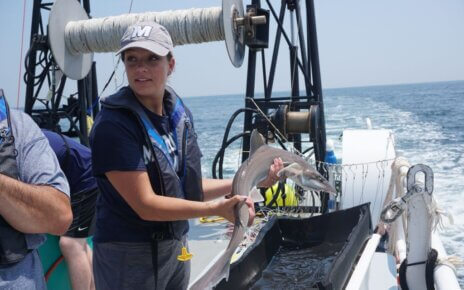The former US ambassador to the Federal Republic of Germany, Phillip Murphy, delivered a speech recognizing the 25th anniversary of the fall of the Berlin Wall in Wilson Hall on Monday, Nov. 17.
The event was hosted by the Honors School and the non-profit German School of Monmouth County.
As former ambassador to Germany during this historic period, Murphy discussed his first-hand experience and other facts about the era. Murphy praised the efforts by government officials in taking down the wall.
“I believe the period from Nov. 1989 to Oct. 1990 is the greatest eleven months of American diplomacy since World War II’s Marshall Plan,” Murphy said.
He also examined the role the US played in assisting Germany at the time of the Berlin Wall and the high respect between the two nations that developed because of it. “George H. Bush remains a hero to virtually every German,” he said.
Murphy guaranteed the audience that if they ask either the Obama or Bush administration today which ally they respect the most, each administration would say Angela Merkel, Chancellor of Germany.
Pat Layton, a senior communication major, attended the event. “It was interesting to hear the changes Germany had went under in 25 years and how their view on America has evolved within that time,” he said.
The emphasis was that the true heroes responsible for knocking the wall down were actually the every day citizens of East Germany. Their relentless attitude was the ultimate tool that drove change.
The speech highlighted that we can look to these historic successes as a guide for possible solutions to current problems the world faces today.
Melissa Ziobro, a history and anthropology instructor, believes that the specter of the Cold War remains and looking to history like this can inform our present and future. “Just look at the headlines these days. The Berlin Wall was probably the most iconic symbol of the Cold War.”
News outlets like the LA Times recently declared, “Russia resuming Cold War-era bomber flights close to US shores.” The Telegraph wrote, “David Cameron: Vladimir Putin could plunge world into new Cold War… Putin’s actions in Ukraine pose a ‘grave’ danger to Europe.” The Wall Street Journal cautioned, “Gorbachev Warns World Is ‘On Brink of New Cold War.”
“Whether this is somewhat overblown media hype or not is debated, but one must understand the Cold War period to make that decision and, further, to decide what America’s role, if any, in ongoing geopolitical events in Europe should be,” Zibrio added.
“Mr. Murphy taught me a lot about my heritage,” said Michelle Gonzales, a junior communication major.
“My dad was born in Germany and he reminded me why I’m so proud of my own nationality.”
Murphy said that the relevance of the fall of the wall today is that for all great leaders in the world, most of the lasting change comes from the streets. Also, things that appear permanent are not always permanent. Perhaps, according to Murphy, we can apply techniques used in this period of history to issues impending on the world today. He referenced ISIS, Syria, the Middle East, North Korea and even Ebola.
“We stayed at the wall, we never gave up. So why give up on any of this today? The Berlin Wall was once cement, but it went away,” Murphy said.


